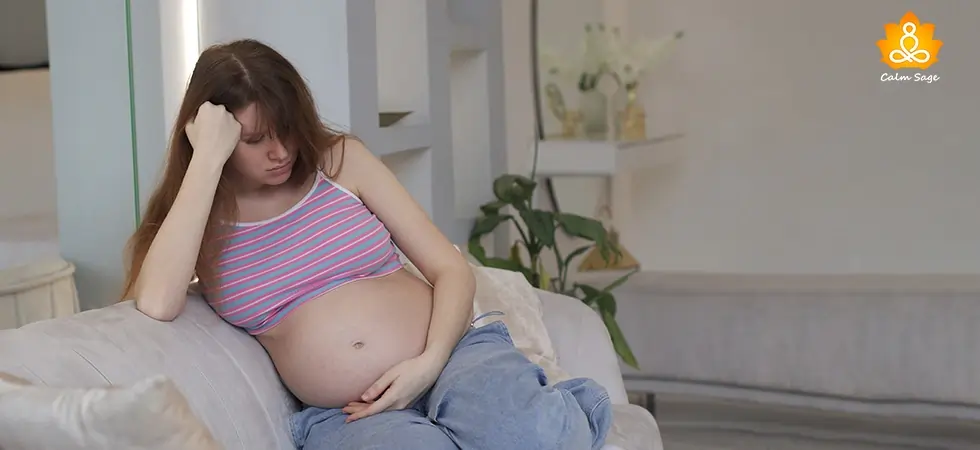Were You Parentified As A Child? Know More About Parentification

The content in this article is thoroughly researched and written based on the extensive testing and reviewing by a reviews team and does not reflect the viewpoints of the Calm Sage editorial team. Calm Sage could receive a commission from product purchased mentioned or featured in this article.
If I ask, “How does your childhood look?” What will be your reply? Were you parentified as a child? Have you ever felt that you were forced to take care of your parents or did you end up being a responsible child or a sibling at a very young age? Did you deal with emotionally incest parents during childhood? If your answer is yes, you can be referred to as “parentified child.”
According to the norms, we are obliged to have supportive and emotionally available parents. But what happens when everything goes in the opposite direction? Parentification is the term used in psychology to refer to a distorted family dynamic wherein a child gets pulled into the role of a parent be it emotionally, logistically, or physically, or when the child gives the caregiver more than they have.
In this blog, we will be taking a deep look at what parentification is, along with its types, causes, signs, effects, and more. So, let’s get started!
What is Parentification?
In simple words, parentification is “growing up too fast.” Parentification happens when a child takes over responsibilities for their parents, siblings, or household even before they are ready.
Examples of Parentification
Here are some common examples of parentification:
-
- Taking care of siblings from a young age
- Looking at household responsibilities since childhood
- Taking care of yourself solely from a young age
- Acting as a conflict diffuser between parent
- Guiding parents or providing emotional support to the parents from childhood
Types of Parentification
Psychologically, there are two types of parentification:
1. Emotional Parentification
Emotional parentification happens when a child provides emotional support to the parents. Signs of emotional parentification are comforting siblings, holding secrets, or diffusing conflict. Herein, a child becomes a personal therapist of the parent, the child makes sure to reassure and soothe the parent.
2. Instrumental Parentification
Instrumental parentification happens when the children are tasked to fulfill adult relationships such as managing finances, cooking dinner, looking after siblings, and more. Some of the tasks mentioned here are not age-appropriate still the child is forced to fulfill those due to lack of support or circumstances.
Signs of Parentification
Below listed are the 15 common signs of parentification:
- Acted as a “pacemaker” while handling family issues
- Constant self-doubt
- Constant urge to be in control due to responsibilities
- Developed a sense of empathy in a younger age
- Didn’t enjoy childhood much
- Difficulty with assertiveness
- Forced to give opinions in financial or home management areas
- Formed emotional closeness with parents
- Guilt and depression
- Loss of childhood
- Often complemented by parents as “responsible”
- Often found yourself comforting parents
- People-pleasing personality
- Stress and anxiety
- Taking up responsibilities at a younger age
Causes of Parentification
Below are some possible causes of the parentification or becoming a parentified child:
- Abuse: Children who were abused by parents take up the responsibilities as a self-soothing option.
- Challenging circumstances: Circumstances like divorce, the demise of a parent or caregiver, financial issues, or immigration may force a child to become a parentified child.
- Health conditions: Parents with medical or mental health conditions might not be able to run errands due to which a child may take up responsibilities.
- Immaturity: Dealing with emotionally immature parents can be really difficult especially when they are not able to fulfill logistical needs, in such situations, the elder sibling might take responsibility for younger siblings.
- Loaded responsibilities: Living with a single parent can be really challenging as a child also has to look after the parent as well.
Long-Term Effects of Parentification
Generally, the duration, severity, and cultural factors play an important role in the effects of parentification. Here are some of the common long-term effects of parentification:
-
- Substance misuse
- Eating disorders
- Symptoms associated with dissociative personality such as lack of concentration, loss of time, and more
- Symptoms of personality disorders
- Suppressed needs
- Unhealthy relationship dynamics
- Other mental health issues such as anxiety, stress, and more
Tips to Overcome the Effects of Parentification in Adulthood
Here are some quick tips to overcome the long-term effects of parentification:
- Accept your inner childhood wounds and become aware of your emotional needs.
- Listen to your inner child’s voice and provide the care your inner child needs.
- Reparent yourself and be friends with your inner child.
- Be kind to yourself and learn about positive reinforcement.
- Practice self-compassion and learn to maintain healthy boundaries
Note: If you’re not able to cope with the effects of parentification, you can always seek professional help to repair the broken parts and learn how to set healthy boundaries with yourself.
To connect with a mental health professional through online platforms, click below:

Great for a large network of licensed therapists
-
$60 to $90/week, billed every 4 weeks
-
Therapy via messaging, phone, or live video chat
-
Flexible cancellation at any time
20% off your first month

Great for CBT Based therapists
-
$40/week, billed every 4 weeks
-
Therapy via messaging, phone, or live video chat
-
Specialization for CBT based Therapy
20% off your first month

Best for Treatment Plants
-
$60 to $90/week, billed every 4 weeks
-
Therapy via messaging, phone, or live video chat
-
Flexible cancellation at any time
$100 off your first month with code SPACE
Conclusion
Parentification is an unhealthy family dynamic with long-lasting impacts on the overall well-being of the children. We, as a parent, need to understand that there’s a certain age for everything and we must allow our children space and time to play, learn, grow, and adapt. Throwing parental responsibilities at a very young age can be overwhelming for children.
If you were thrown to be a parentified child, learn to prioritize your needs, your mental health, and yourself now so that you can provide yourself a sense of safety and make your adulthood a positive experience!
For more such content, connect with us through all social media platforms.
Thanks for reading!




















